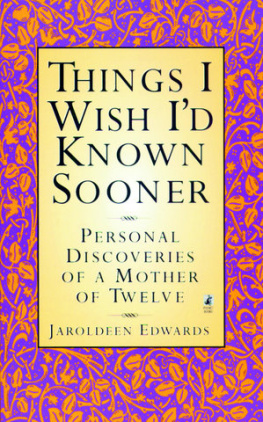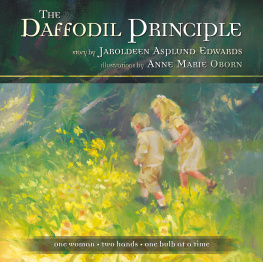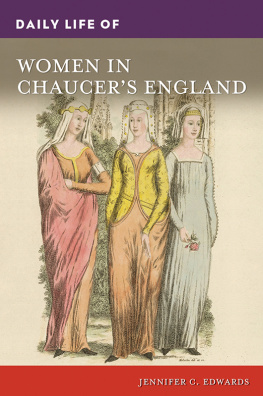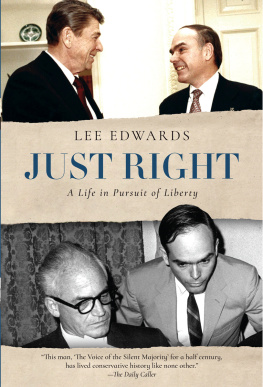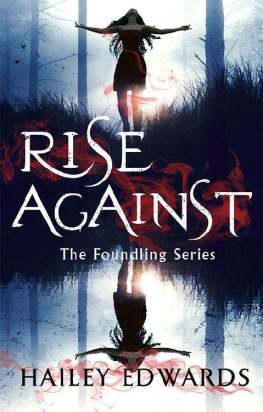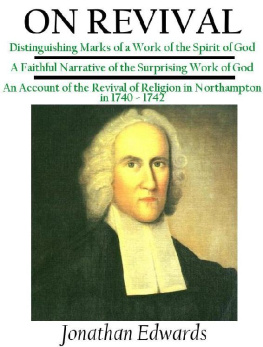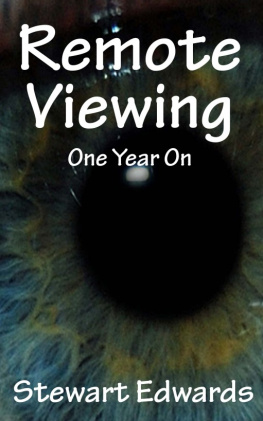Things I Wish I'd Known Sooner
Jaroldeen Edwards
1991 Deseret Book CompanyAll rights reserved. No part of this book may be reproduced in any form or by any means without permission in writing from the publisher, Deseret Book Company, P.O. Box 30178, Salt Lake City, Utah 84130. This work is not an official publication of The Church of Jesus Christ of Latter-day Saints. The views expressed herein are the responsibility of the author and do not necessarily represent the position of the Church or of Deseret Book Company.Deseret Book is a registered trademark of Deseret Book Company.
Prologue
An Illuminated Life
Standing in the Huntington Library in San Marino, California, surrounded by glass-enclosed display cases filled with rare parchment and vellum manuscripts from the fourteenth and fifteenth centuries, I pause at a softly lighted case containing an open volume. Each letter, in deep-black ink, is a work of artstraight and exquisite in detail and execution. The Latin or Old English words flow together in sentences indecipherable to my unskilled mind.
At the beginning of each page, one glorious letter, splashed with gold, radiant with scrolls, flowers, carmine, and royal blue, stands like a beacon. Down the center of the page, in the margins, and across the bottom of the manuscript are minutely detailed illustrations. Suddenly, in the colorful mosaic of design, I discern knights and ladies on horseback, their miniature costumes capturing foreveras fresh as this momenttheir moment in time.
And now my eye discerns the meaning of the black letters running together, and I read: "Whan that Aprill with his shoures soote... " Ah yes, I see! The Canterbury Tales!
The illustrations and decorations in these precious manuscripts are called illuminations. Patient medieval scholars, artists, and copyists highlighted their work with pure gold, the rarest of inks and dyes, and the most delicate and elaborate designs. They illuminated for beauty; illuminated for moments of quick and true understanding; illuminated to pierce tedium and apathy with sudden, magnificent vision. With their illuminations they turned the humble pages of their repetitive task into treasured works of lasting art.
A number of years ago I accompanied my husband on a business trip to Barbados. It was an enormously exciting trip, the first time I had ever been outside the continent of North America and the first time I had ever been to an island.
The journey involved several plane connections, the final one in a bitter snowstorm in New York. By late afternoon we arrived on the island. My fantasy of what a Caribbean island was going to be like was a cross between the paintings of Gauguin and old movies starring Bob Hope and Dorothy Lamourpalm trees swaying, the scent of frangipani (whatever that was), flowers, lush ferns, and the ocean lapping at my feet.
As we were herded off our airplane onto an open tarmac, all we could see was empty sky and other airplanes. We were hurried into the terminal and crowded into small English-made taxis. With luggage piled on our laps, we began our dizzying ride to our hotel.
Our taxi drove along a narrow, winding road (which I later learned went down the center of the small island) between tall stands of sugarcane ready to be harvested. For nearly an hour we sped along, passing other taxis, seeing an occasional small house or a windmill, but for the most part green fields banked the road, and it felt as though we were driving through a long tunnel.
Finally we arrived at our hotel, where we were driven into a small courtyard and greeted in a tiny, vine-shrouded villa by a courtly gentleman. He called for a bellman, who took our bags and invited us to follow him down a twisting path that was overhung with flowering shrubs. Finally we stopped at the door of our cottage. As we entered our room, the door closed behind us and we stood blinking in the darkness. I could hear the bellman walk across the floor to the opposite wall and deposit our suitcases on a stand.
Confused and weary, I stood by the door, waiting for my eyes to grow accustomed to the darkness. I had been in this paradise for over an hour, and all I had experienced was disappointment. Nothing was what I had dreamed it would be. Nothing made sense. I didn't even know where I wassomewhere on an island in the middle of an ocean, neither of which I was even sure existed at this point.
Just then the doorman pressed a latch, and with a dramatic sweep of his hands he threw open some floor-to-ceiling shutters that we had not discerned in the darkness. As suddenly as though he had turned on a searchlight, the room was bathed in glorious light, and there before us, where only darkness had existed one second before, was the splendid tropical sun shining in a sky of burnished turquoise. And stretching as far as my eyes could see was the endless sapphire Caribbean, the froth of its lacy-white surf lapping up to edge of a dazzling beach. The far wall of our room was made of glass with sliding doors, and the great window had been there all the time. While I had stood in darkness, confused and disappointed, in front of my very eyes, with only a thin barrier separating me from the knowledge of it, was the whole of eternity.
Illumination. That is what it is all about. Those brief moments in the darkness and confusion of our daily lives when a word, a thought, an action throws open the shutters, and for a brief instant, through an uncovered window, we glimpse a portion of forever.
Acknowledgments
With abiding gratitude...
To my parents, Charles and Julia Asplund, who taught me to love life, the gospel, and the written word.
To my friends, cherished, but too numerous to mention, who have decorated and illuminated my life.
To my editor, Eleanor Knowles, whose gifts of insight and discernment make the best, better.
To great writers whose words themselves bring light.
To my blessed children, Marianna, Julia, Catherine, Charles, Christine, Robin, Carolyn, Weston, Robert, William, Jaroldeen, and Patricia, more precious than words, more valued than words can say, more dear than the heart can hold.
To my beloved husband, Weston Eyring Edwards, counselor, friend, adviser, enabler, supporter, teacher, lover, mentor, exampleand all in all.
To all who have made my life so rich with joyand who put up with this decidedly unfinished woman.
Preface
This is not a "how-to" book.
It is not a book with tidy answers to untidy questions.
It is not a "perfect person" book.
It is not an easy book.
What this book is, is a book of personal discoveries, expressed as precious, albeit one-sided, conversations we might have had through the years, as friends. Our conversations would probably have touched on the full spectrum of our livesintellectual knowledge, scriptural insights, personal anecdotes, observations from other cherished and admired friends, shared housekeeping hints, and all of the glorious, myriad "stuff" (as Shakespeare called it) of which our dreams are made.
Women's conversations are splendid thingsdiverse, profound, humorous, complex, and vivid. But if women's conversations are diverse, it is only because they reflect the fact that we, as women, are diverse. Our lives are individual and kaleidoscopic, filled with changing seasons and unique, personal challenges. By accepting, understanding, and learning from this shared and wondrous diversity, we gain greater joy, truer purpose, and a wider vision of the endless chain of our own possibilities.
The conversation of true friends, properly heardwithout envy, defensiveness, false barriers, comparisons, or criticismis good for the soul.

